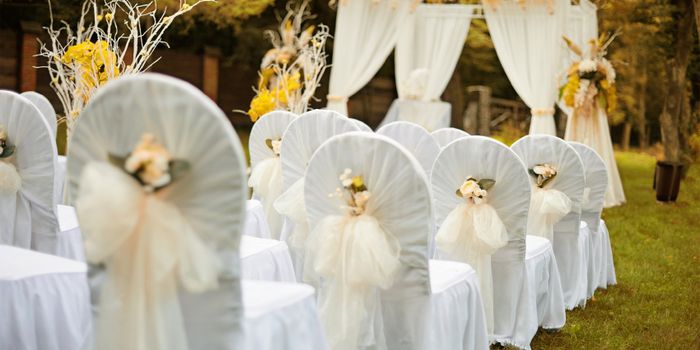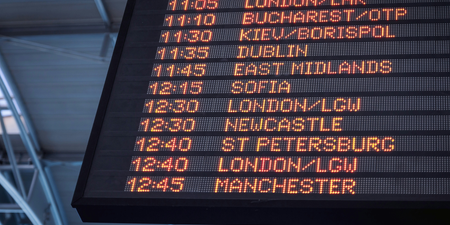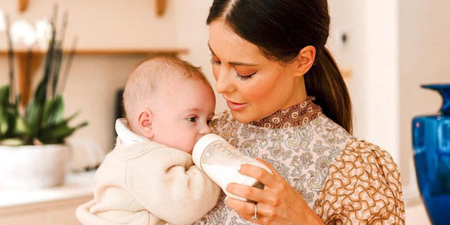Welcome to The Bride Files – covering all things related to weddings as Laura prepares for her big day.
A few weeks ago I wrote about my decision not to get married in a church. And now I’m in the middle of planning my big day.
While most of us know what happens during weddings in churches, very few of us will have been to an alternative type of wedding. At first I found it very confusing, trying to get my head around all the different types of ceremonies and the process needed to book someone to marry us.
I sat down with Dr. Lorraine Mancey O’Brien, who is the Director of Marry Me Ireland, about all the options available to people who don’t want a traditional church wedding.
The first thing all couples have to do is contact the HSE with your intent to marry and organise an appointment. This needs to be done three months prior to your wedding, at a minimum, but as they are very busy it’s best to leave yourself six months to organise. It costs €200 for this.
Next, you need to decide who will conduct your ceremony.
There are a number of options available to you. Having a non-church wedding opens up a lot more alternative and more scope to add personal touches. You can choose between two types, a wedding ceremony with a solemniser or a celebrant.
The difference is that a solemniser can legally wed you on that day and a celebrant cannot. For the celebrant, you will need to go to the HSE and get legally married separately. There are three different types of solemnisers, Humanists, Spiritualists and Interfaith Ministers. However, there are less solemnisers in the country so you are limited on choice.
Most Humanists, for instance, are booked out until mid 2017 and will become increasingly more popular as people move away from the traditional church wedding.
Each one brings their own philosophy to the ceremony and will cost you anywhere from €450 – €650 for their services.
Humanism
According to the Humanist Association of Ireland, a humanist ceremony is, “all about a couple celebrating their love for each other and making a commitment to one another in the company of those people who are important to them. This is done with appropriate, well-chosen words, readings and music in a place of the couple’s choosing.”
There are 21 Humanists listed on the site and you need to contact them directly to check their availability.
Spiritual
According to Spiritual Ceremonies, a spiritual wedding ceremony is “a non-denominational ceremony that doesn’t conform to the religious aspects of the mainstream religious beliefs. Although spiritualism is a religion, it does not have any particular god similar to other religions.”
With these type of ceremonies, there are only 2 components of the service that legally have to be fulfilled and they are to find out if there any lawful impediments to the marriage and to complete the “I Do” vows.
Interfaith
According to Interfaith Ministers Ireland, an Interfaith wedding ceremony is “a personal reflection of who you are as a couple and where you are heading together.
“You can create your own vows and work with your Celebrant to design a meaningful ceremony which can include your favourite readings and music.”
They have 10 Ministers listed on their site.
Choosing A Celebrant For Your Wedding
The other route, if you are planning a ceremony conducted by a celebrant, is a very simple process. There is only one organisation in the country that can do this for you, Marry Me Ireland.
Lorraine, who is the Director, explained that she set up the company three years ago when she was planning her own wedding and found there was limited information available for couples looking for alternative weddings.
They currently have 22 fully trained celebrants and will increase to 50 by this summer so they can cater for a greater amount of ceremonies around the country.
They work very closely with couples to create a bespoke, individual ceremony. You start with an initial consultation where you speak about your relationship, how you met etc and from there they begin to craft a special 30-minute ceremony.
They help you select the music, readings and features of your wedding and supply you with drafts of how it will run on the day, with the couple having the final say on everything. The ceremony also allows the couple to include the guests on the day and incorporate family members into the ceremony.
There are so many lovely features available with Marry Me Ireland to include in your wedding such as the Unity Candle, Hand Fasting Ceremony, Sand Ceremony and Wine Box/Love Letters Ceremony.
Unity Candle
Two candles are lit at the beginning of the ceremony to honour the departed from both sides of the wedding. Then the mothers of the bride and groom are invited up to take the light from those candles to light two more candles. Finally, the couple light one last candle, from the light from the first four candles. At the end you will have five candles lit, representing the families generations.
Hand Fasting Ceremony
This involves the couple putting their hands together and pieces of ribbon or cord being tied around their hand, symbolising the bond of love. It’s an old pagan ritual and is where the sayings ‘tying the knot’ and ‘hand in marriage’ come from. Lorraine says it’s a lovely way to include children into the ceremony, whether they are the couple’s own children or relatives.
You can use different colour ribbons which all have different meanings, blue for patience/devotion/sincerity, green for wealth, red for passion/strength/fertility and yellow for charm/joy/confidence etc.
Interestingly, Kate Middleton and Prince William had a hand fasting ceremony during their wedding at Westminster Abbey.
Sand Ceremony
The couple combine sand from two jars, or multiple jars, into one jar and they get to keep it forever. This works really well for couples who lived abroad or met abroad where they can combine sand from the country they met with Irish sand. It’s also very good for children to be included in the ceremony.
Lorraine told me, “As the sands are sitting singly and as we pour them into the contain in the middle they can never ever be separated again. They will always be together.”
Wine Box/Love Letter Ceremony
You write a love letter to each other or sometimes the parents write a letter to their children. The letters are sealed and put in a box with a bottle of wine and locked and you have created your own romantic love capsule. Lorraine says that couples then open the box on their fifth anniversary, drink the wine and read the letters.
Marry Me Ireland can organise a wedding within a month if needs be but they would advise to plan 6 months in advance. They have a solemniser option also, and you would, therefore, be getting a celebrant and solemniser for the day (ceremonial and legal).
It costs €450 for a celebrant with Marry Me Ireland and will increase to €650 if you also require a solemniser. As Lorraine put it, their wedding ceremonies are, ‘Your Day, Your Way’ and their belief is that ‘it may not be perfect but it’s perfect for you’.
Happy planning!
If you spot anything or have a product or company you want to feature on The Bride Files you can get in touch with me [email protected] or on Twitter @LaurHolland.






















































